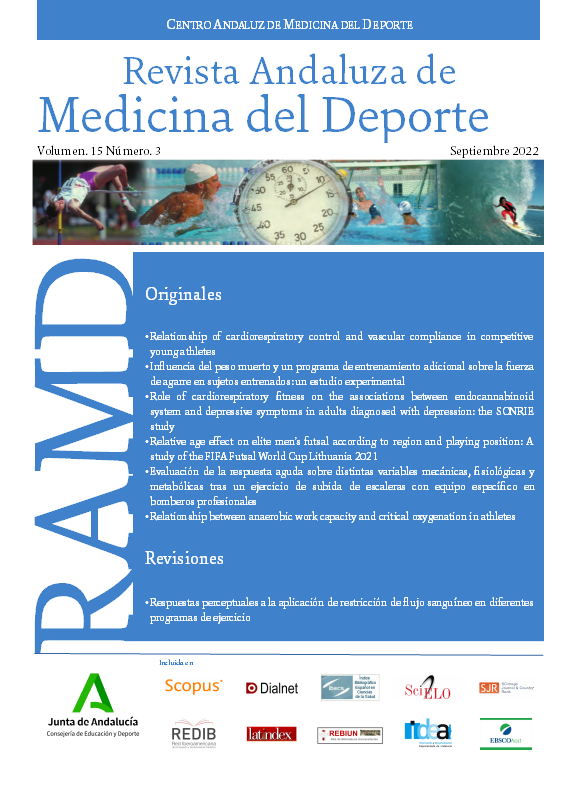Evaluation of the acute response on different mechanical, physiological and metabolic variables after a stair-climbing exercise with specific gear in professional firefighters
Abstract
Objective: To analyse the acute response on different mechanical, physiological and metabolic variables after a stair-climbing exercise with specific gear in professional firefighters.
Method: 34 professional firefighters (Age: 42.7 8.2 years; Weight: 76.16 6.70 kg; Heigh: 177 5 cm) performed a stair-climbing exercise over 6 floors with specific gear at maximum speed. Before and after this exercise, different mechanical variables: vertical jump capacity (CMJ) and lower limb strength in full squat exercise with a load equivalent to that of the specific gear (35 kg, VMP35kg); and physiological and metabolic variables: oxygen saturation [O2], heart rate [FC] and lactate [La] were analysed. Participants were also grouped by age ranges (G1: 26-35 years; G2: 36-45 years; G3: ≥ 46 years).
Results: A significant decrease (p < 0.001) in vertical jump capacity and lower limb strength in full squat after the stair-climbing exercise was observed. In addition, a significant increase (p < 0.001) in lactate and heart rate was also observed. When analysing by age ranges, significant differences (p < 0.05) in vertical jump and squat exercise with 35kg were observed in G1 and G2 with respect to G3, always in favor of the younger age group.
Conclusions: The stair-climbing exercise with specific gear showed a significant decrease in lower limb strength performance, as well as a significant increase in heart rate and lactate variables, and a significant decrease in oxygen saturation. These results indicate that this type of effort induces high levels of fatigue.


